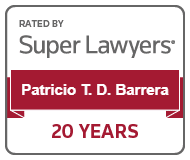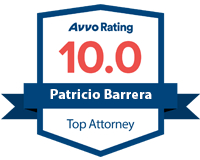Californians have federal and state remedies against sexual harassment

Two kinds of sexual harassment against job applicants and employees are unlawful under both federal and state law.
In these modern times, Californians would like to think that they can go to work and find safe, professional environments – and they should always be able to do so. Unfortunately, illegal sexual harassment in employment still happens to people of both genders all too often, despite federal and state protections.
The allegations in a major federal lawsuit that was recently settled illustrate just how shocking workplace sexual harassment can be.
In a September 2015 press release, the U.S. Equal Employment Opportunity Commission announced that its suit in U.S. District Court against Los Angeles-based call-center company VXI Global Solutions had been settled for $600,000 and the defendant’s agreement to take several concrete, aggressive steps internally to prevent sexual harassment, including training, education, monitoring, consulting with a professional for advice and direction, surveys and more.
The EEOC is the federal agency with the responsibility to enforce federal anti-discrimination in employment laws, including those against sex discrimination, which includes sexual harassment. One of the ways the agency does so is to investigate complaints and bring lawsuits against those it believes have violated the law, like the employer in the VXI Global Solutions case.
In that lawsuit, it was alleged that both female and male employees endured a hostile work environment in which supervisors targeted employees with behaviors of a sexual nature like groping, rubbing, propositioning, crude and explicit comments and “unwanted lap dances.” These behaviors are classic examples that when severe or frequent can create an illegal sexually harassing hostile work environment, which occurs when such behaviors unreasonably interfere with work performance or create an environment that is intimidating, offensive or hostile.
Although apparently not alleged in this case, the other type of sexual harassment, called quid pro quo, occurs when an employer requests a sexual favor in exchange for employment or an employment benefit, or to prevent firing or another negative employment consequence.
The VXI Global Solutions case also included a claim that the employer unlawfully retaliated against some of the employees by terminating their employment after they complained about sexual harassment.
Sexual harassment in employment is also illegal under California state law, enforced by the California Department of Fair Employment and Housing, or DFEH, an agency with similar investigatory and enforcement powers to those of the EEOC.
It is extremely important for a victim of workplace sexual harassment to speak with an attorney as early as possible. The applicable federal and state laws are complex and involve many legal and tactical decisions about which legal remedy to pursue in a given case. This area of law is also complicated by the interplay between the federal and state agencies involved as well as the circumstances under which lawsuits are available. In particular, legal counsel can advise about procedural requirements, including deadlines.
Depending on the situation, remedies that may be available include injunctive relief, front or back pay, reinstatement, compensatory or punitive damages, legal fees and more.
The El Segundo-based lawyers of Barrera & Associates, Attorneys, represent victims of workplace discrimination and harassment in Southern California.





